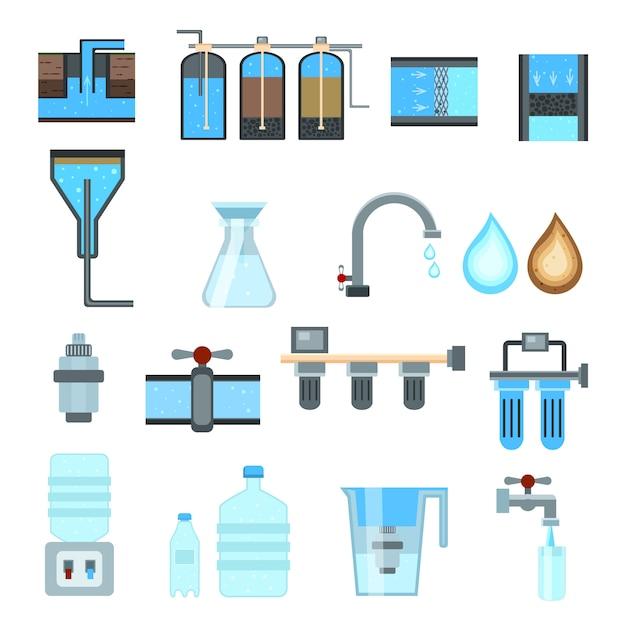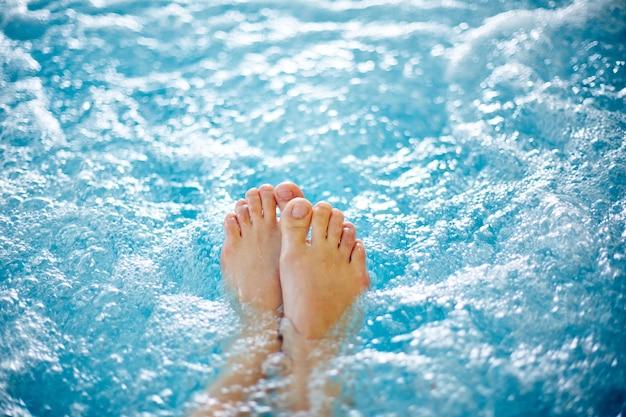If you own a pool with a diatomaceous earth (DE) filter, you may have wondered how often it needs to be cleaned. Keeping your pool filter clean is essential for maintaining optimal water quality and preventing any potential issues. In this blog post, we will address common questions such as how frequently DE filters should be cleaned, the consequences of running a DE filter without DE, and the reasons why DE may blow back into your pool. We will also provide tips on cleaning and maintaining your DE pool filter, and answer other related queries you may have. So let’s dive in and get those pool filters sparkling!
How Often Should I Clean My DE Pool Filter
In the never-ending battle against pool maintenance, one question that frequently floats to the surface is, “How often should I clean my DE pool filter?” While the answer may not be as clear as the water in your pool, fear not! We’re here to dive into this topic and help you navigate the murky waters. So grab your snorkel and let’s get started!
The Delicate Balance of Filtration
Maintaining a properly cleaned DE (diatomaceous earth) pool filter is essential for pristine pool water quality. As a pool owner, you probably already know that DE filters are known for their excellent filtration capabilities. But just like a Michelin-starred chef, they need a spotless workspace to perform at their best.
Factors to Consider
Before we dive into the specifics of cleaning frequency, let’s discuss some factors that can influence how often you should clean your DE pool filter.
Pool Usage
The first factor to consider is how often you use your pool. If you’re hosting epic pool parties every weekend, your filter will likely need more frequent cleaning than if your pool sees sporadic use. So, the more you swim, the more debris your filter will encounter, and the more often you’ll need to clean it.
Weather Conditions
Mother Nature also has her say in the cleanliness of your pool filter. Windy days, storms, and even pollen levels can significantly impact the amount of debris that ends up in your pool. So, keep an eye on the weather forecast and adjust your cleaning schedule accordingly.
The Cleaning Schedule
Now that we’ve waded through the determining factors, let’s get to the golden question: “How often should I clean my DE pool filter?”
Regular Maintenance
As a general rule of thumb, it’s recommended to clean your DE pool filter at least once every six months. This regular maintenance will help keep your filter operating smoothly and maintain optimal filtration.
Signs of Trouble
However, sometimes your pool may throw you a curveball that requires more frequent filter cleanings. If you notice decreased water flow, cloudy water, or increased pressure on your filter gauge, it’s a clear sign that your filter needs some extra TLC. Don’t ignore these cries for help; instead, jump into action and give your filter a thorough cleaning.
Yearly Refresh
In addition to regular maintenance and troubleshooting, it’s wise to give your DE filter a deep cleanse at least once a year. This will help remove any stubborn debris or buildup, ensuring your filter is in top-notch shape for the upcoming pool season.
Final Thoughts
Keeping your pool filter in pristine condition is crucial for maintaining crystal clear water. By understanding the factors influencing your cleaning schedule and following our guidelines, you’ll be able to keep your DE pool filter swimmingly efficient. So, grab your goggles, take a deep dive into your cleaning routine, and enjoy a sparkling clean pool all year round!
FAQ: How Often Should I Clean My DE Pool Filter
Can DE clog a filter
Yes, DE (diatomaceous earth) has the potential to clog a pool filter if not properly maintained. However, with regular cleaning and proper use, DE can be highly effective in keeping your pool clean and clear.
How often do DE filters need to be cleaned
The frequency of cleaning your DE filter depends on various factors such as pool usage, environmental conditions, and water quality. As a general guideline, it is recommended to clean your DE filter every 6-8 weeks. However, you may need to clean it more frequently if you notice a decrease in water flow or an increase in pressure.
What happens if you run a DE filter without DE
Running a DE filter without DE is like trying to make a sandwich without the bread – it simply won’t work properly. DE is the key component that helps trap and remove debris from your pool water. Without it, the filter will not be able to effectively clean the water, resulting in poor filtration and potentially dirty pool water.
Can you put too much DE in a pool filter
Yes, it is possible to put too much DE in a pool filter. Overloading the filter with excessive DE can lead to clogging and reduced water flow. It is important to follow the manufacturer’s guidelines and use the recommended amount of DE for your specific filter model and pool size.
What can you use to clean a DE pool filter
To clean your DE pool filter, you will need to backwash it and then perform a thorough rinse. Backwashing involves reversing the flow of water through the filter to remove trapped debris. After backwashing, a rinse cycle is necessary to flush out any remaining DE particles. You can use clean, fresh water for both backwashing and rinsing.
Why is DE blowing back into my pool
If you notice DE blowing back into your pool, it may be a sign of a damaged or improperly installed filter grid or a worn-out filter element. It could also indicate a problem with the filter’s pressure gauge or a malfunctioning multiport valve. It is crucial to address this issue promptly to prevent further contamination of your pool water.
Is it safe to swim with DE in the bottom of the pool
It is generally safe to swim with a small amount of DE in the bottom of the pool. However, if you notice a significant accumulation of DE, it is advisable to clean it to maintain optimal water quality and prevent potential skin irritation. Regular cleaning and maintenance of your DE filter will help minimize DE residue in the pool.
How long do DE filters last
With proper care and maintenance, DE filters can last for several years. The lifespan of a DE filter depends on factors such as usage, water quality, and maintenance practices. Routine cleaning, regular inspection, and timely replacement of worn-out parts will help prolong the life of your DE filter.
Can a DE filter get clogged
Yes, a DE filter can get clogged if not properly maintained. Regular cleaning, backwashing, and thorough rinsing are essential to prevent clogging and ensure optimal performance. It is also important to follow the manufacturer’s recommendations for filter maintenance.
Do you have to add DE every time you backwash
Yes, it is necessary to add DE every time you backwash your DE filter. Backwashing removes trapped debris and old DE from the filter, and adding fresh DE after backwashing ensures proper filtration and optimal cleaning efficiency. Remember, DE is the bread and butter of your DE filter!
How much DE do I add after backwashing
The amount of DE to add after backwashing depends on the size of your filter and the manufacturer’s recommendations. As a general rule of thumb, it is typically recommended to add 1 pound of DE per 10 square feet of filter area. However, always refer to your filter’s manual for specific dosage instructions.
How do you rinse a DE filter
To rinse your DE filter, simply switch the filter valve to the rinse position after completing the backwashing process. Allow water to flow through the filter for about 1-2 minutes to flush out any remaining debris and DE particles. Proper rinsing will help ensure clean and clear pool water.
Why is my DE filter pressure high
High pressure in your DE filter can be caused by various factors, such as a dirty filter, clogged or damaged grids, a malfunctioning pressure gauge, or a problem with the pump. It is important to identify and address the root cause to maintain proper filtration and prevent potential damage to your filter.
How often should you add DE to the pool filter
It is recommended to add DE to your pool filter whenever the pressure gauge indicates an increase in pressure or when the water flow is noticeably reduced. Regular monitoring of your filter’s pressure and performance will help determine the appropriate time for DE addition.
How often should you backwash a DE pool filter
The frequency of backwashing your DE pool filter depends on factors such as pool usage and water quality. As a general guideline, it is recommended to backwash your filter when the pressure gauge shows an increase of around 8-10 psi from the clean filter pressure. However, it is always best to refer to your filter’s manual for specific recommendations.
How many pounds is a DE scoop
A standard DE scoop typically holds about 1 pound of DE powder. It is important to use the correct amount of DE for your pool size and filter model to ensure optimal filtration and avoid overloading the filter.
Why does my DE filter keep clogging
A DE filter that keeps clogging may be experiencing issues such as damaged or worn-out grids, improper filter installation, an excessive accumulation of debris, or an inadequate amount of DE added during the filter recharge. It is crucial to address these issues promptly to prevent further clogging and maintain efficient filtration.
Why is DE going back into my pool
DE going back into the pool can be a sign of a damaged or torn filter grid, a worn-out filter element, or a malfunctioning multiport valve. It is essential to inspect and repair any damaged components to prevent DE from bypassing the filter and contaminating your pool water.
Does diatomaceous earth clog drains
While diatomaceous earth can be an effective filtration medium for your pool filter, it is not suitable for your drains. DE is fine and powdery in nature, which can cause clogging and blockages if poured directly into drains. Make sure to dispose of used DE properly in accordance with local regulations.

